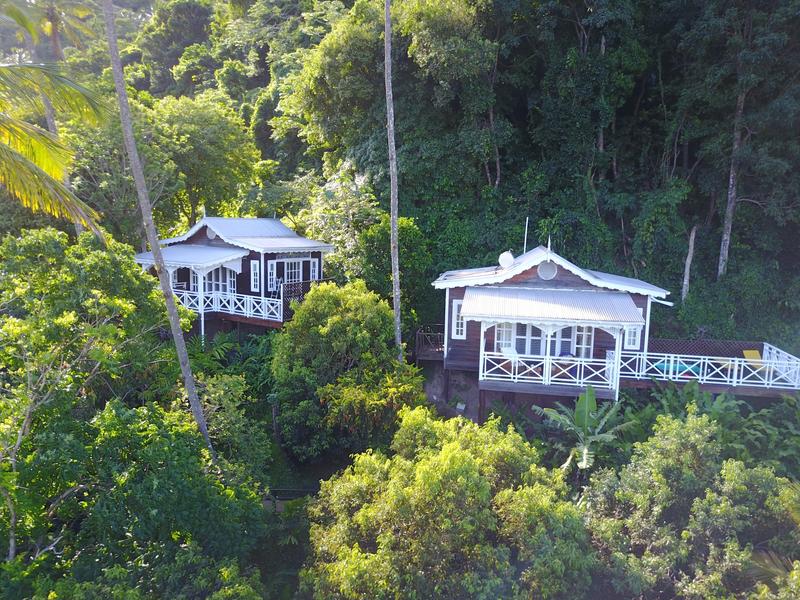The travel industry is full of surprises. After facing a complete standstill, followed by rising to unknown heights due to the post-pandemic wanderlust, it has become clear that travel is what is on everyone’s mind, and will continue to do so.
Studies have shown that international overnight arrivals constantly increase since the pandemic, and there is no change of that trend in sight. Travel is as popular as never before!
With headlines of natural disasters, extreme temperatures and catastrophic weather events, there is another trend rising in addition though: sustainable travel. Many travelers seek a more substantial approach towards vacation or business trips. One that thrives towards conservation of nature, the local communities and wildlife.
Reports show that 69% of travelers seek sustainable travel options. But what exactly are those?
We have the roundup of the trends that are shifting the tourism industry right now!
1. Community Based Tourism
This type of tourism puts the focus on supporting local communities while experiencing their way of life and culture. The aim is to involve the local community in the tourism sector and share the benefits, by creating jobs and economic opportunities, directly with them.
Travelers can support the local community by staying in locally owned hotels, dining in local restaurants and support local businesses. Not only is this a way of preserving cultural heritage but it also allows the traveler to truly engage with the community of his travel destination and promote cultural exchange.

2. Wildlife Conservation
Wildlife conservation is a crucial part of sustainable tourism, as wildlife tourism grows in popularity with more and more travelers seeking conscious encounters with nature.
Wildlife tourism can be a key factor in protecting endangered species and their habitats as well as supporting local communities. A WWF report shows that in Belize more than 50% of the population are supported by income generated through tourism activities that are related to the Belize Barrier Reef Reserve System and its fisheries.
Responsible wildlife tourism means choosing tours and sanctuaries that prioritize animal welfare, habitat conservation and education about protecting natural heritage.

3. Carbon Offsetting
Carbon offsetting allows individuals or organizations to balance out their carbon footprint by investing in environmental projects. The schemes are used differently, by some people or organizations for a specific activity, like a flight or cruise, by others for their whole carbon footprint. Most of the projects supported are located in developing countries and designed to reduce future emissions.
The popularity of carbon offsetting has been constantly increasing – as has been criticism towards it. Some claim that carbon offsetting is a comfortable way for many to avoid changing their behavior and ways of consumption to make their lifestyle more sustainable. Of course there are others that claim that those who make the effort to reduce their footprint by carbon offsetting also take measures in their everyday lives to reduce their footprint directly.
The opinions towards carbon offsetting may vary, the trend to invest in the schemes certainly will continue.

4. Sustainable Travel Experiences
“Volontourism” – a combination of volunteering and tourism – is one to the most rising trends when it comes to conscious travel right now. Engaging in volunteer work while traveling is what many seek for, allowing travelers to contribute to local communities or conservation projects. The opportunities vary, from short-term activities like beach clean ups to being part of deforestation projects or supporting local community development programs.
5. Night Trains
What a comeback! Night trains are on the rise again, no wonder: comfort, convenience and of course eco-friendliness are what it took to bring them back into the spotlight.
A dense night train network all over Europe offers countless possibilities to travel across the continent without boarding a plane. The climate impact of night train travel in comparison to air travel is 28 times lower, making them the most sustainable choice for longer distances.
New routes are launching constantly, proving the success of the old-fashioned and just so modern way of travel.

6. Sustainable Accommodations
The demand for eco-friendly accommodation has been constantly rising in recent years. The range is huge: from basic campsites to “glamping”-resorts to boutique hotels and big hotel chains – travelers want to stay in a sustainable accommodation, no matter the destination. Eco-certifications have become more popular than ever, many of them giving the traveler a chance to spot truly conscious hotels and make an informed decision for their booking choice.
Sustainable accommodations contribute to minimizing the impact on the environment despite offering a unique and comfortable travel experience.
Our eco suites are the perfect proof of how luxurious a conscious hotel can be. Sustainable travel, without compromise.
Link to our eco suites-
United Nations Carbon Offset Platform











